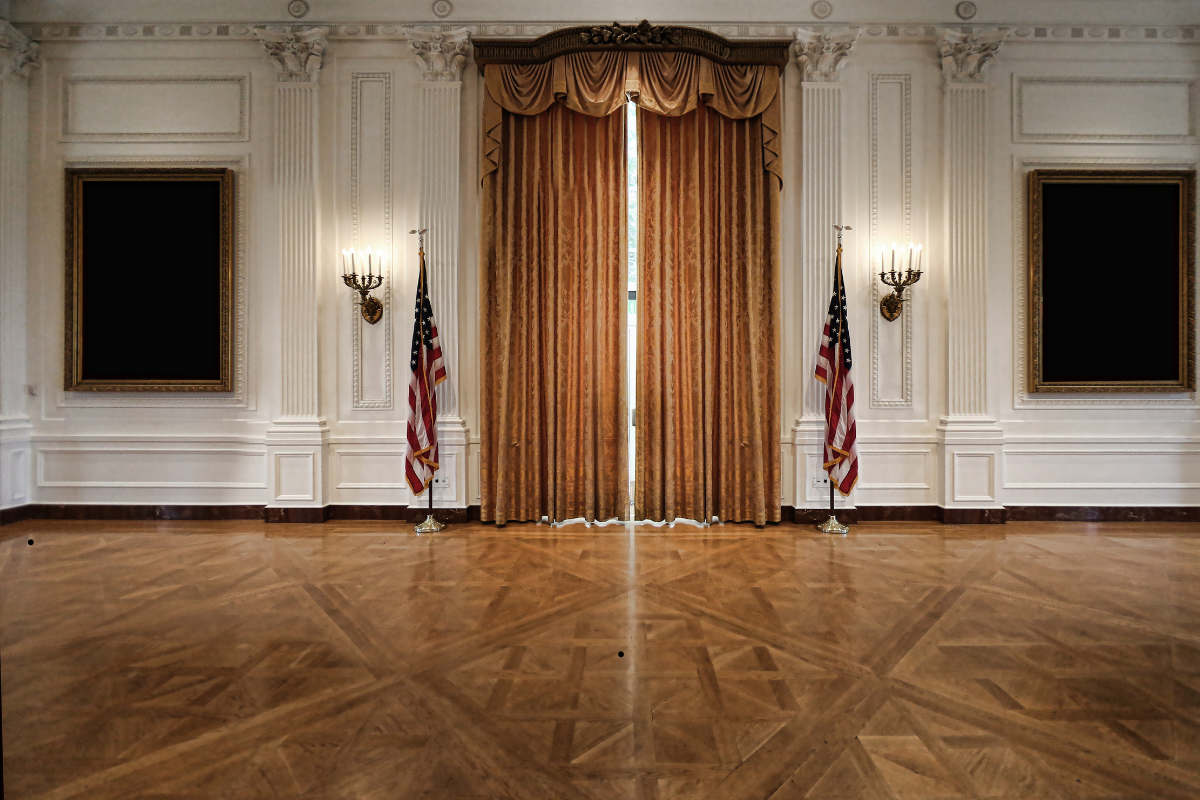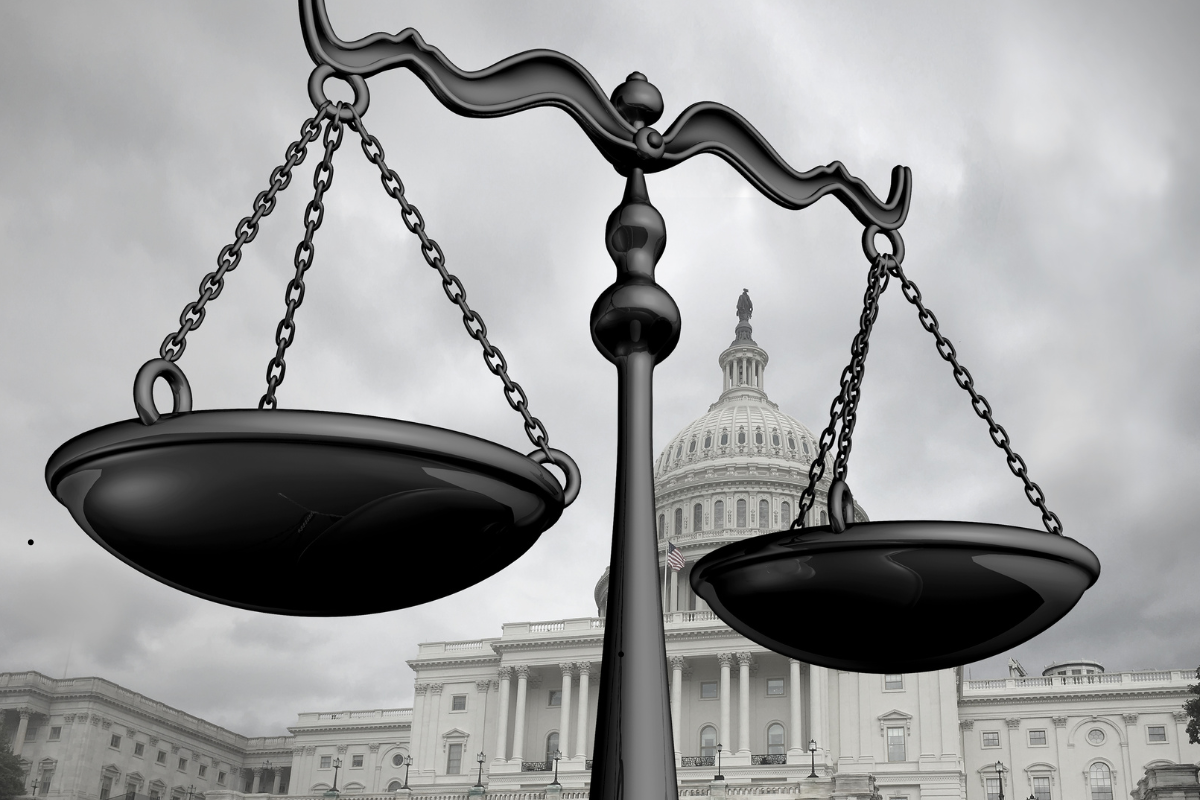Federalist 66
Federalist 66 marked the conclusion of Publius discussing Congress: the subsequent block of essays will deal with the executive. In this essay Hamilton responded directly to Anti-federalist objections over the impeachment power and its consequences for the blending of power in the Senate, where trial and removal from office might occur, and this iwthin the same body that made appointments and treaties.
In many ways he simply repeated arguments he made in 65, but a word keeps popping up that demands attention: corruption. The Constitution, Hamilton reminded readers, had the essential purpose of protecting the political body against “corruption and treachery.” Scholars debate exactly what writers in that era meant by that word and it seems to have had multiple shades of meaning, even if it had one main meaning. As David Hume put it: “The corruption of the best things gives rise to the worst.” Most things are in their nature good and become perverted some element from outside; impurities necessarily diminish the purity of a thing in the same way a single drop of ink ruins a white shirt.
Politics can hardly be considered pure, but is there a sense in which it is one of “the best things”? I think many of the framers thought so in the same way that all “the best things” are good precisely because they have defined limits. Marriage is a human good because it involves the foreswearing of all others; a painting is good because it has a frame and a story because it has a beginning, middle and end. The form of the thing determines its material goodness.
Even so with politics. A properly framed constitution, with its limits in place, channels and expresses the human desire for justice and good order and our willingness to live cooperatively with one another. In ancient Greece politics elevated people above their natural state; resulting from our inherently social nature, politics were considered necessary for our ennoblement, our completion as human beings. People disengaged from politics were considered idiotes, those who did not live up to the responsibilities of citizenship. As merely private individuals they never cultivated the virtues that alone could find their provenance and expression in the public square. It’s one thing to be good at something in the privacy of your home, but true excellence demands the expression on those skills in public, where our abilities are truly tested but also serve a good beyond our own. I might hit the ball well on the driving range, but how does my swing hold up while competing on the course, especially if my livelihood is at stake?
Christianity changed this classical understanding of politics. What would it gain a person who won the world but lost his soul in the process? What if, instead of destroying our enemies, we had to love them? By creating an ethic that stressed purity, Christianity made politics seem like a dirty enterprise filled with compromises at best and a confusion of kingdoms at worst. Certainly this is how Machiavelli saw it. When political regimes were at their most tenuous, either at their inception or during periods of decay, political leaders would be forced to take extreme measures to preserve and stabilize the regime.
We would have to make our peace with the fact that to prevent one kind of corruption — the decline and fall of the regime itself, the stakes that Hamilton stated immediately in the first Federalist essay — we would have to accept a second kind of corruption — the kind that forced us to reconcile ourselves to the use of dark forces. We see throughout American history political leaders employing the second type in order to avoid the first, such as when the second Bush administration placed many restrictions on civil liberties in the name of security.
In an ideal world politics may well require the cultivation of civic, intellectual, and moral virtues, but these will rarely exist unalloyed. Impurities abound that would corrupt the enterprise: money, the desire for power, status anxiety, bitter recrimination and partisanship, revenge, sexual domination, and so forth. These factors may be thought of as extrinsic to the just and proper exercise of political authority, but no political theory can dispense with their pernicious and perpetual presence; the best we can do this side of heaven is mitigate their effects.
Anyone writing in the constitutional era worried about corruption, both personal and that of the system itself, where the corruption of the things we think good leads to them becoming the worst. A system of government might be necessary, might even be a genuine human good, but under the pressure of corruption becomes tyrannical. Maintaining liberty in the face of this possibility remained the desideratum of those of the age. As Hume had put it: “[V]irtue, knowledge, love of liberty, are the qualities which call down the fatal vengeance of inquisitors; and when expelled, leave the society in the most shameful ignorance, corruption, and bondage. The illegal murder of one man by a tyrant is more pernicious than the death of a thousand by pestilence, famine, or any undistinguishing calamity.”
Sin is the corruption of the best of things — the human heart. The gift of human sexuality is corrupted by lustful desire whereby our sexual impulses express themselves in destructive and perverse forms such as adultery, whereby desire attaches itself to an illegitimate object. Often we think the best ways to avoid sin are either to repress desire or to remove the source of temptation that would lead that desire to attach itself to the wrong object. This can work at an individual level but proves difficult to sustain at a social level for a simple reason: all you need is one person allowing his desires to become distorted in order for the enterprise to fail. Tyrants have little difficulty gaining control in the land of the pure.
As I said, everyone writing at the time worried about the problem of corruption, but they disagreed on the best way to handle it. The Anti-federalists largely believed that the dangers of corruption required their handling at scale. Just as in families the dangers of sin could be mitigated by familiarity and solicitous love, so also in neighborhoods and towns and villages could the dangers of political corruption be mitigated by familiarity and mutual dependency. Then, too, the object of temptation — power — left much to be desired. Homely objects tend not to inflame lust, while home proved very attractive indeed. In any case, if local power did turn for the worse its effects would be limited by scale.
As power increased and congealed, however, it would prove more tempting. Having made the object of desire more attractive the Federalists had to figure out a way to restrain the fired impulses of lust. Anti-federalists worried that the prettification of power would attract the worst sorts, those driven by passion to infidelity and deception. Publius consistently stressed two necessary mechanisms for controlling those who would whore themselves for power: identifying men of virtue who could control their desire, and confidence in a series of “checks and balances” that could channel desire into constructive directions. Some Anti-federalist writers may have shared those beliefs, but worried that the consolidated system would not result in our best and brightest seeking office or maintain them in virtue once holding it, nor could a system that blended power to the degree the constitutional one did effectively check desire. As we have seen, party identity and ideology easily erase the boundaries between the branches. Members of Congress will happily yield powers and privileges to other branches so long as that other branch accomplishes purposes those members approve of.
In 66 Hamilton attempted to convince readers one last time that the Senate did not blend executive, legislative, and judicial power to the degree that critics feared. The sharing of treaty and appointment power with the executive and trial power with the judiciary were necessary measures to stabilize the regime at its moment of crisis. Popular assemblies sloshed around too much and were too thin on political wisdom to provide the ballast needed to keep the polity on course. The regime required some kind of aristocratic element. The House would always be the preeminent player in our politics, including operating as “the umpire in all elections of the president,” thus the rest of the system had to be designed to limit and control the power of the House. Just as we require reason to control our wayward desires (“I won’t pursue that woman because I would lose the one I have, and everything else I have along with her”) so too a more deliberate body was necessary to control the impulses of the popular one.
Hamilton insisted on the imprecise nature of Anti-federalist complaints concerning the Senate, meaning that no precise response could occur. This typical rhetorical ploy connected to Hamilton’s occasionally confusing tendency to appeal to experience and experiment as justifications for the granting of power. Here he argued that the new government’s impeachment and trial powers in the legislature were actually weaker than those allowed to the state of New York under its constitution.
Once power is located in a legislative assembly it quickly falls prey to partisan rage or to class interest, thus betraying the interests of the whole. Furthermore, simple majorities could easily “vex and oppress” large minorities. In this context Hamilton discussed one of the Constitution’s major mechanisms for controlling corruption: the use of supermajorities. It might perhaps be the case that collusion between the executive and the Senate could thwart the people’s will, but it would be virtually impossible to get ⅔ of the Senators to be corrupt.
“The security essentially intended by the Constitution against corruption and treachery in the formation of treaties, is to be sought for in the numbers and characters of those who are to make them. The JOINT AGENCY of the Chief Magistrate of the Union, and of two thirds of the members of a body selected by the collective wisdom of the legislatures of the several States, is designed to be the pledge for the fidelity of the national councils in this particular.”
No mechanism internal to the House could subvert the operations of a majority no matter how directed against the public interest they might be. The ⅔ requirements for treaties and trials meant that the Senate would have a higher level of control on its operations and the possibilities of corruption than would the House. Granted, the Senate blended executive and legislative power, but a president would consistently have to command supermajorities in order to accomplish corrupt designs. Senators would not easily yield to executive pressure, Hamilton believed, for they would be sufficiently angered by any presidential deception that they would seek to “punish the abuse of their confidence, and vindicate their own authority.” Feeling betrayed, Senators could “count upon their pride, if not upon their virtue” to restrain both the executive as well “the arts and influence” of corrupted members.
All well and good as far as it goes. But why create such awkward and unreliable measures, critics seemed to argue, and why rely so much on the emergence of virtuous actors, when the simpler and more elegant solution already existed; namely, preventing the concentration of power itself? The more power becomes concentrated the more complicated and intricate the restraints necessary and the more likely that they fail. Rescaling politics necessarily results in the rescaling of the consequences of failure. When something too big to fail inevitably does, the results are even more catastrophic, uncontrollable, and unpredictable. One thing, however, can be predicted: large systems that fail use those opportunities to become even larger and more powerful. Crises in large systems result in tyrannical outcomes.
Director of the Ford Leadership Forum, Gerald R. Ford Presidential Foundation
Related Essays




